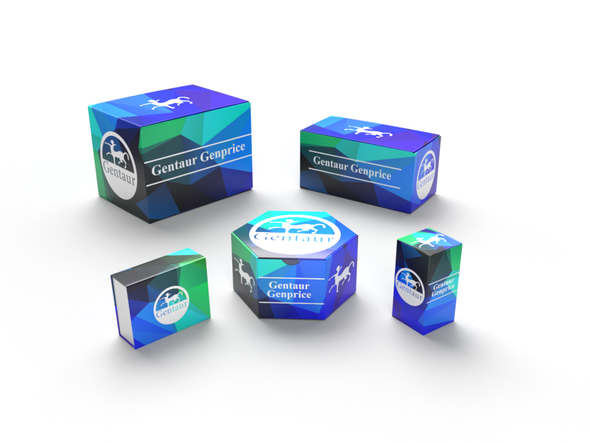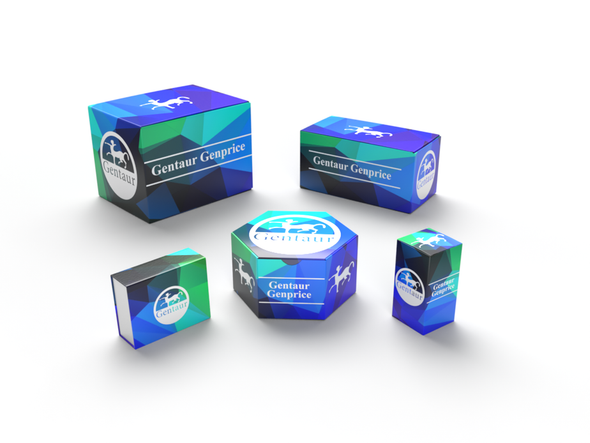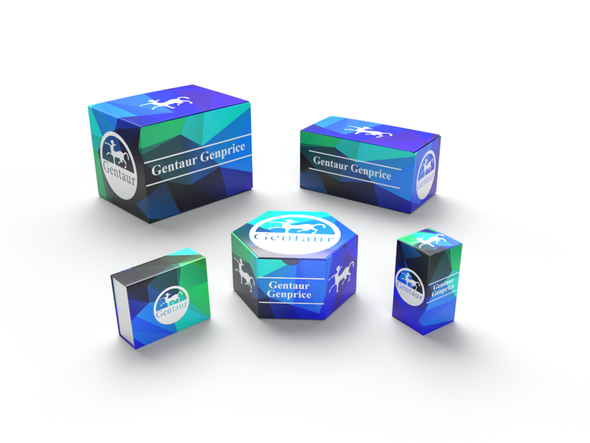Description
CARD9 Antibody | 2515 | Gentaur UK, US & Europe Distribution
Host: Rabbit
Reactivity: Human
Homology: Predicted species reactivity based on immunogen sequence: Mouse: (88%) , Rat: (82%)
Immunogen: CARD9 antibody was raised against a 16 amino acid peptide near the carboxy terminus of human CARD9.
The immunogen is located within the last 50 amino acids of CARD9.
Research Area: Apoptosis
Tested Application: E, WB, ICC
Application: CARD9 antibody can be used for detection of CARD9 by Western blot at 2.5 μg/mL. A band at approximately 59 kDa can be detected. Antibody can also be used for immunocytochemistry starting at 10 μg/mL.
Antibody validated: Western Blot in human samples and Immunocytochemistry in human samples. All other applications and species not yet tested.
Specificiy: N/A
Positive Control 1: Cat. No. 1216 - PC-3 Cell Lysate
Positive Control 2: Cat. No. 1217 - MDA-MB-361 Cell Lysate
Positive Control 3: Cat. No. 1204 - K562 Cell Lysate
Positive Control 4: Cat. No. 17-004 - K-562 Cell Slide
Positive Control 5: N/A
Positive Control 6: N/A
Molecular Weight: 59 kDa
Validation: N/A
Isoform: N/A
Purification: CARD9 Antibody is affinity chromatography purified via peptide column.
Clonality: Polyclonal
Clone: N/A
Isotype: IgG
Conjugate: Unconjugated
Physical State: Liquid
Buffer: CARD9 Antibody is supplied in PBS containing 0.02% sodium azide.
Concentration: 1 mg/ml
Storage Condition: CARD9 antibody can be stored at 4˚C for three months and -20˚C, stable for up to one year. As with all antibodies care should be taken to avoid repeated freeze thaw cycles. Antibodies should not be exposed to prolonged high temperatures.
Alternate Name: CARD9 Antibody: CANDF2, hCARD9, Caspase recruitment domain-containing protein 9
User Note: Optimal dilutions for each application to be determined by the researcher.
BACKGROUND: CARD9 Antibody: Apoptosis is related to many diseases and development. Cell death signals are transduced by death domain (DD) , death effector domain (DED) , and caspase recruitment domain (CARD) containing molecules. CARD containing proteins include some caspases, Apaf-1, CARD4, IAPs, RICK, ARC, RAIDD, BCL-10, and ASC. A novel CARD-containing protein was recently identified and designated CARD9, which interacts with the CARD activation domain of BCL-10. CARD9 associates with BCL-10 and forms a complex within cells. CARD9 induces apoptosis and activates NF-κB. CARD9 is an upstream activator of BCL-10 and NF-κB signaling.






